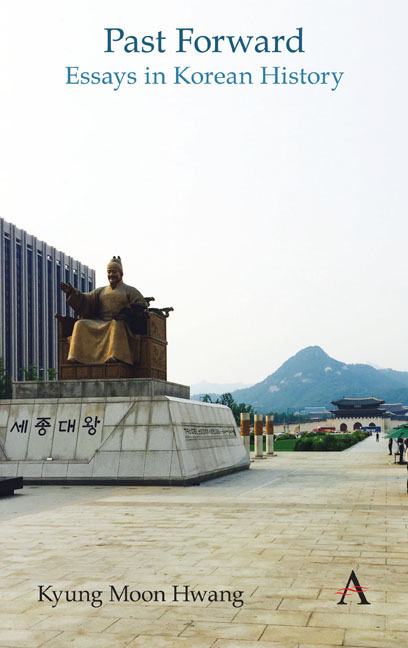Book contents
- Frontmatter
- Contents
- List of Figures
- Foreword
- Chronologies of Korean History
- Themes
- Acknowledgments
- Note on Romanization and Spelling
- Part I Circulating History
- Part II Durable Traditions
- Part III Ancient Remains
- Part IV Dynastic Depths
- Part V Modern Origins
- Part VI Challenges of Nationhood
- 30 Korea's Past in Light of Brexit
- 31 Openness and Exclusion
- 32 The North Korean View of History
- 33 Another Way to View National Division
- 34 The First National Assembly Elections
- 35 Who Started the Korean War?
- 36 Textbooks and Competing Nationalist Histories
- 37 The Complexities of Memorial Day
- 38 Adoption's Spotlight on Korean History
- 39 Questioning Monuments
- 40 Taking Ownership of the Past
- Part VII History Makers
- Part VIII External Presences
- Part IX Trials of Modernization
- Part X Gripped by the Past
- Index
31 - Openness and Exclusion
from Part VI - Challenges of Nationhood
- Frontmatter
- Contents
- List of Figures
- Foreword
- Chronologies of Korean History
- Themes
- Acknowledgments
- Note on Romanization and Spelling
- Part I Circulating History
- Part II Durable Traditions
- Part III Ancient Remains
- Part IV Dynastic Depths
- Part V Modern Origins
- Part VI Challenges of Nationhood
- 30 Korea's Past in Light of Brexit
- 31 Openness and Exclusion
- 32 The North Korean View of History
- 33 Another Way to View National Division
- 34 The First National Assembly Elections
- 35 Who Started the Korean War?
- 36 Textbooks and Competing Nationalist Histories
- 37 The Complexities of Memorial Day
- 38 Adoption's Spotlight on Korean History
- 39 Questioning Monuments
- 40 Taking Ownership of the Past
- Part VII History Makers
- Part VIII External Presences
- Part IX Trials of Modernization
- Part X Gripped by the Past
- Index
Summary
One of the most fascinating and distinctive features of Korean society in the past was that, for over a millennium, privilege and rank were determined by a complex mixture of openness and exclusion. As in most cultures, a very small number of people, particularly the monarchy and aristocracy, dominated political power and access to resources by exploiting the mass of commoners and slaves. Who belonged in these categories, of course, was based on the accident of birth.
There was, though, also an element of openness in granting privilege: the state examinations to select government officials. Such practices reflected mostly the influence of Confucian teachings, which increased in Korea as time passed. But Confucianism valued stability and hierarchy even more, and in Korea, this combination of both the open and the closed produced an enduring supremacy of the nobility, commonly known as the “yangban.” These and other elites passed down, generation after generation, their privileged and exclusive access to educational benefits and political favors.
Beginning in the late nineteenth century, however, Korean leaders were forced to reconsider not only whether such a system was fair or morally acceptable, but also whether it produced the kind of country that could survive in the modern world. These concerns, expressed by such notable figures as Yu Gil-jun and Seo Jae-pil (Philip Jaisohn), introduced the now conventional notion of categorizing Korea and other countries as “advanced,” “backward,” or something in between. They understood that a vital criterion for becoming advanced or “enlightened” was the degree of openness and fairness in assigning social, economic and political privileges. Although such new ideas were adopted by government officials and public intellectuals alike, throughout the modern era there remained a tension between the pursuit of such openness and the pull of traditional Confucian values. Confucian ideals, furthermore, were not all incompatible with the goals of developing a modern society. The great importance attached to learning, for example, would provide a solid basis for rewarding intelligence, skill, character, and diligence, and hence also for granting privilege.
Along with universal schooling, however, also came the obsession with using examinations as the exclusive measure for talent in the modern education system.
- Type
- Chapter
- Information
- Past ForwardEssays in Korean History, pp. 91 - 92Publisher: Anthem PressPrint publication year: 2019

